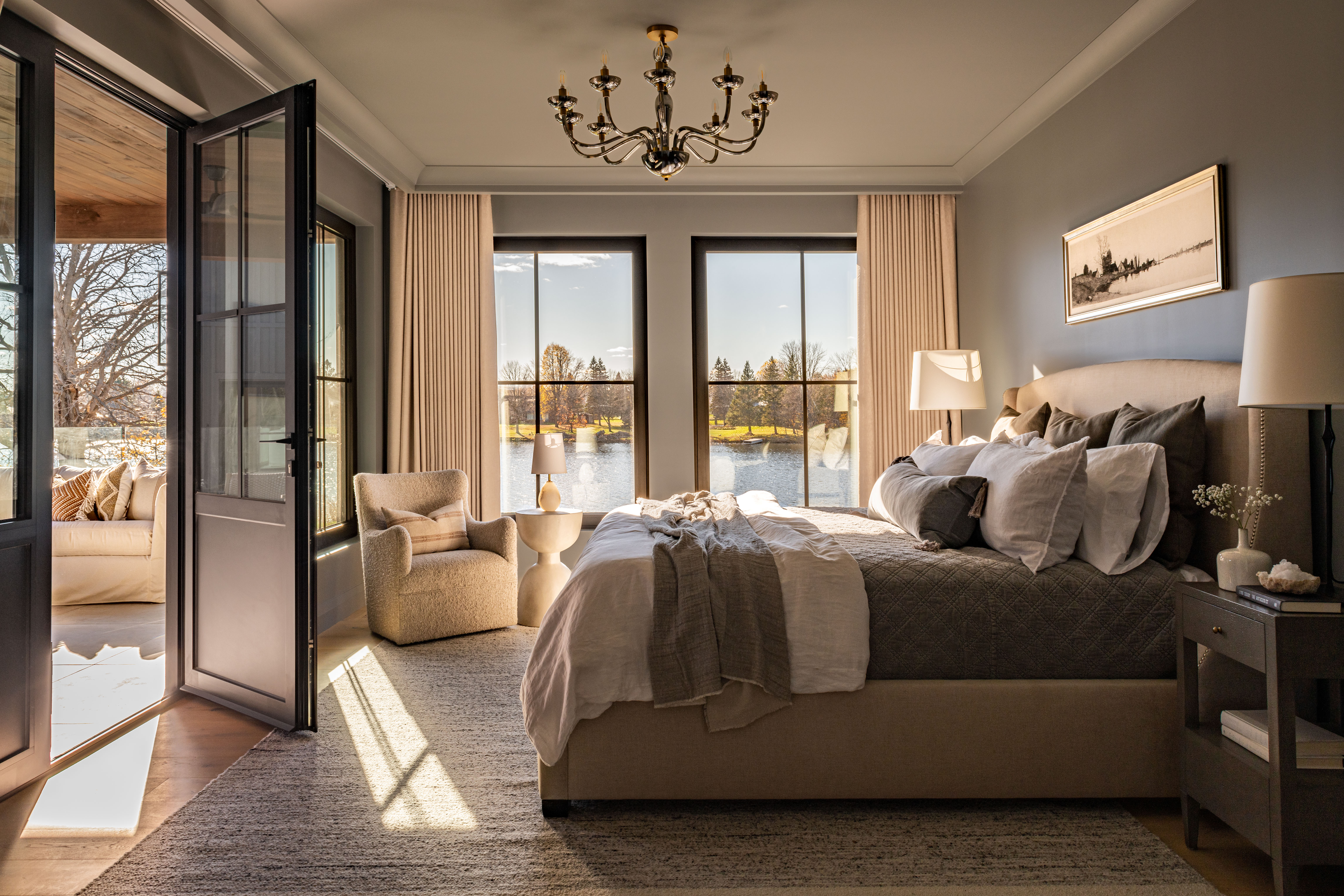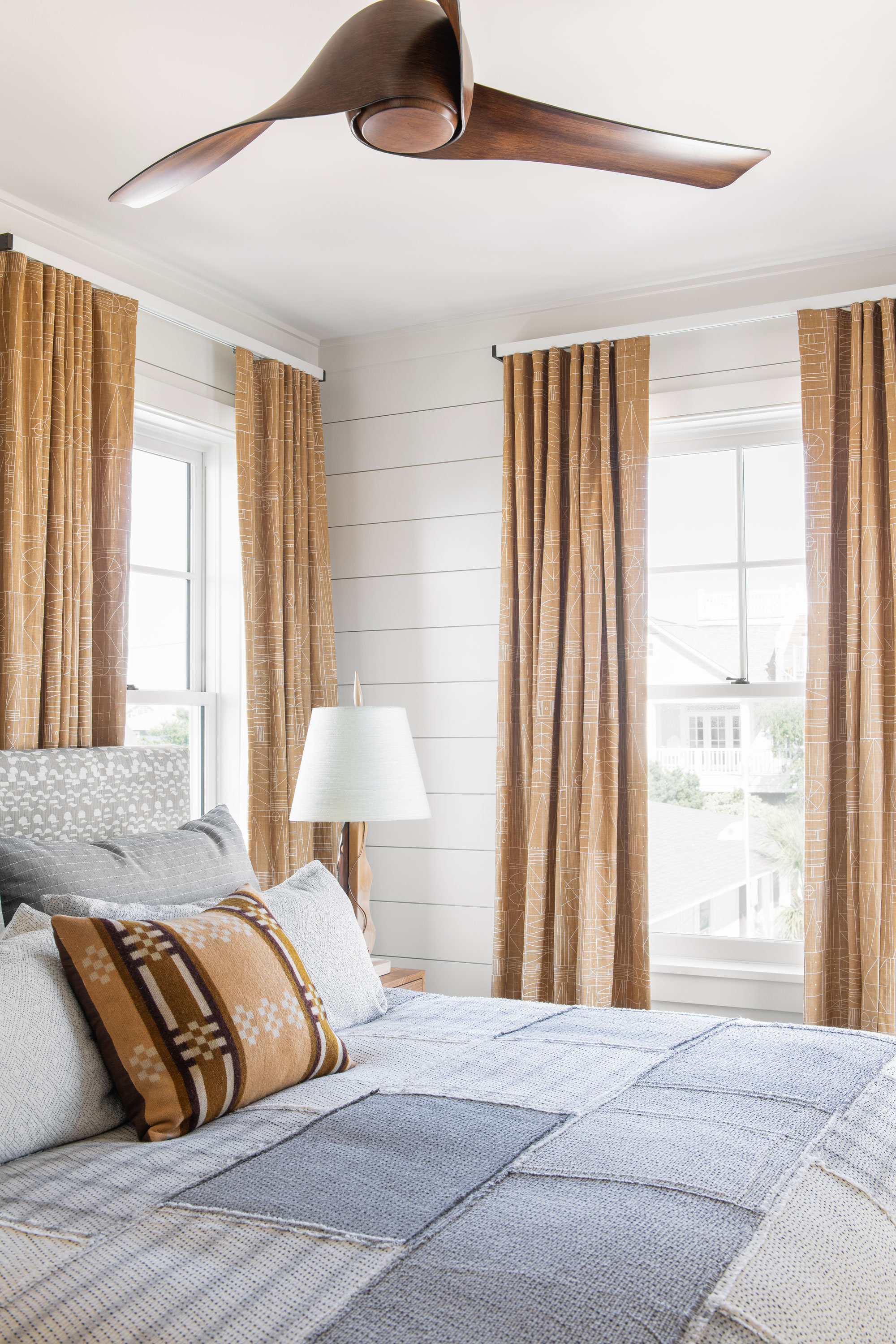
For many of us, the idea of sleeping through the night, uninterrupted, sounds like a dream come true. But for light sleepers, the slightest noise, or just an inch of light peeking through your window, can be enough to jolt you out of your restful slumber.
If this situation sounds familiar to you, you may have already found yourself considering investing in blackout curtains for your bedroom, but not everyone's a fan. Ask around the Livingetc office and you'll find staunch defenders on either side of the debate. Some prefer to sleep in total darkness, some like to wake from their slumber slowly with the rising sun.
But, when it comes to how to sleep better, is one option better for your sleep cycle than the other? Before you invest in blackout curtains, take a look at what our experts think.
What are the pros of blackout curtains?

If you find yourself waking up as soon as the sun begins to rise, you would likely benefit from sleeping in a darker environment. The tightly woven material of blackout blinds prevents the infiltration of any external light sources. While lighter curtains may allow beams of sun to drift into your room, the design of these blinds purposefully protects your from these inconveniences.
'One of the key components for restful sleep is reducing light exposure prior to bed,' explains sleep expert and psychologist, Dr Kristen Casey.
'Blackout curtains help to reduce the light in our bedrooms, which helps with melatonin production,' Dr Casey continues. Melatonin is the hormone that is typically associated with sleep and is released in response to darkness.
Dr Michael Breus, known as The Sleep Doctor, agrees: 'a dark sleep environment improves sleep quality, and blackout curtains are certainly one option.'
Your circadian rhythm, or your internal clock, works by regulating itself in response to changes in light exposure — some people even use sleep light therapy to cope with insomnia. The darkness offered by blackout blinds alerts your system that it is time to sleep. Sleep physician Dr Brandon Peters explains that 'light exposure promotes wakefulness through its action on the circadian system. Blackout curtains can eliminate light disturbances during sleep.'
What are the cons?

While the experts are in agreement that blackout curtains can certainly act as an effective tool for combating sleep issues, this does not mean that they are the only, or the best, option available.
Blackout blinds work through preventing the presence of any external light within your bedroom, allowing your circadian rhythm to adjust to your environment and generate the production of melatonin within your body. However, as Dr Brandon Peters explains, this dark environment is not always desirable. 'When it is time to wake, direct sunlight exposure to the eyes should be sought,' Dr Peters explains. 'Throw your bedroom curtains wide when it is time to wake!'
Blackout blinds are also not the only option for a restful night's sleep. The Sleep Doctor suggests: 'A much simpler - and cheaper - alternative is a good sleep mask that blocks out light entirely. You can take it with you when you travel and use it as often as you like.'
So, are they good for you?
Overall, the experts agree that blackout curtains are a smart and effective tool in promoting proper sleep hygiene and regulating your sleeping pattern.
Before you opt to invest in blackout curtains or blinds, try adjusting your bedtime routine to reduce your exposure to light before sleeping.
As Dr Kristen Casey explains: 'Our circadian rhythm (aka our sleep rhythm) is regulated by light and consistency. So if you are exposing yourself to light upon waking, and reducing the light prior to sleep, you are likely to be more regulated than someone who may not consider reducing light as a part of their bedtime routine.'







